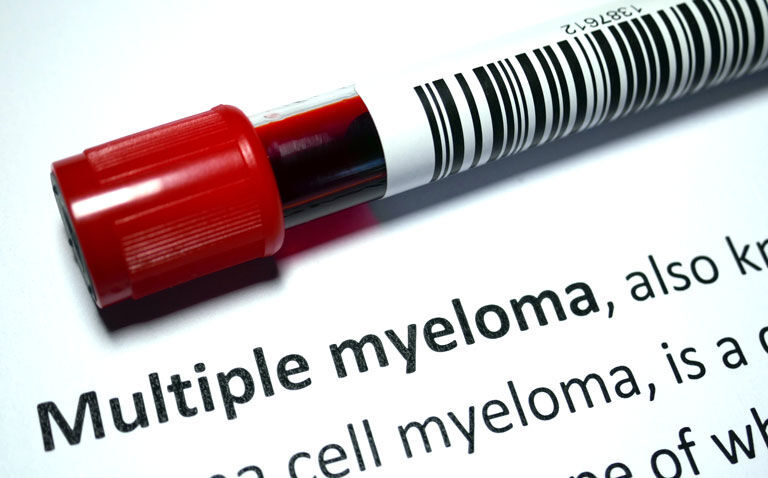Ide-cel provided greater progression-free survival than five other regimens in heavily pretreated relapsed or refractory multiple myeloma
In a randomised controlled trial, an international group of researchers showed that the CAR T-cell therapy, Ide-cel (idecabtagene vicleucel) gave rise to greater progression-free survival than any of five other standard regimens in heavily pre-treated patients with relapsed or refractory multiple myeloma.
Although treatments for multiple myeloma have improved in recent years, evidence suggests that around 16% of patients relapse after 8 months of treatment. Nevertheless, while CD38-targeting monoclonal antibodies have made a significant impact to the treatment of patients with multiple myeloma (MM), those who a refractory to this regime have a poor prognosis. The use of CAR T-cell therapies directed against the B-cell maturation antigen (BCMA) expressed on myeloma cells, have proven to be effective in MM. In fact, one Phase II trial in which Ide-cel was given to relapsed or refractory MM patients, generated a response in over 70% of patients, with 33% experiencing a complete response. While CAR T-cell therapy clearly works in relapsed/refractory MM, there is an absence of comparative studies of the treatment compared to other regimes.
In the current study, researchers recruited MM patients who were refractory to between two and four prior regimes. Eligible participants were then randomised 2:1 to Ide-cel or one of five standard regimens and which included immunomodulatory agents, proteasome inhibitors and daratumumab. The primary endpoint was set as progression-free survival whereas secondary endpoints included the overall response and survival.
Ide-cel and progression-free survival
A total of 386 patients with a median age of 63 years (60.5% male) received either Ide-cel (254) or one of the standard regimes. Among the entire cohort, 66% had triple-class refractory disease and 95% daratumumab-refractory disease.
After a median of 18.6 months follow-up, the median progression-free survival in the Ide-cel group was 13.3 months compared to 4.4 months in the standard regime groups (hazard ratio for disease progression or death, HR = 0.49, 95% CI 0.38 – 0.65, p < 0.001). In fact, 12-month progression-free survival was 55% for Ide-cel but only 30% in the standard regimen. Furthermore, a complete response occurred in 39% of the intervention group and on 5% in the standard therapy group. Data on overall survival were immature. In addition, adverse effects of either grade 3 or 4 were more frequent in the Ide-cel group (93% vs 75).
Based on these results, the authors concluded that Ide-cel gave rise to an improved response compared to standard therapy in patients who failed to respond to two to four prior regimens.
Citation
Rodriguez-Otero P et al. Ide-cel or Standard Regimens in Relapsed and Refractory Multiple Myeloma. N Engl J Med 2023










